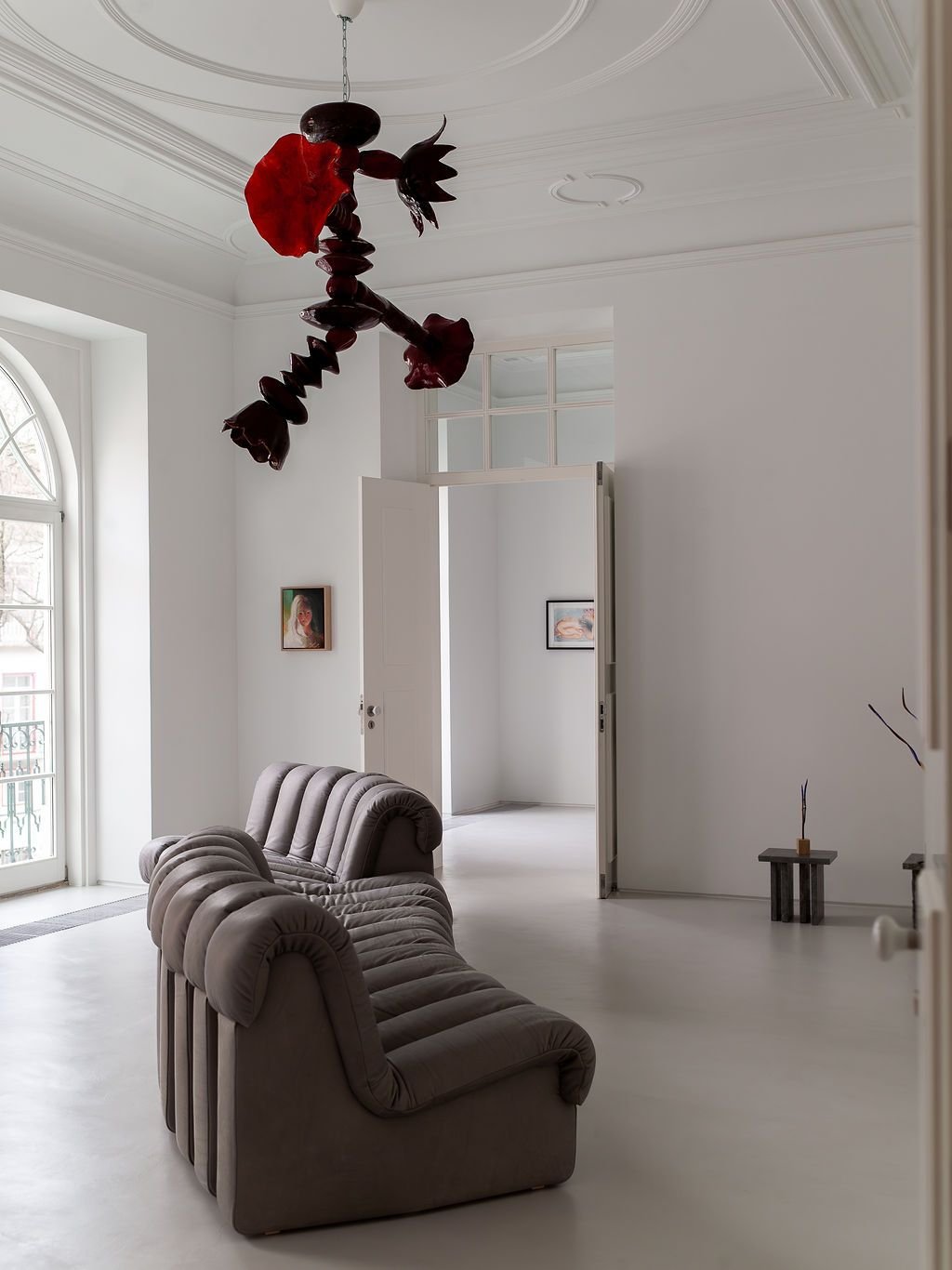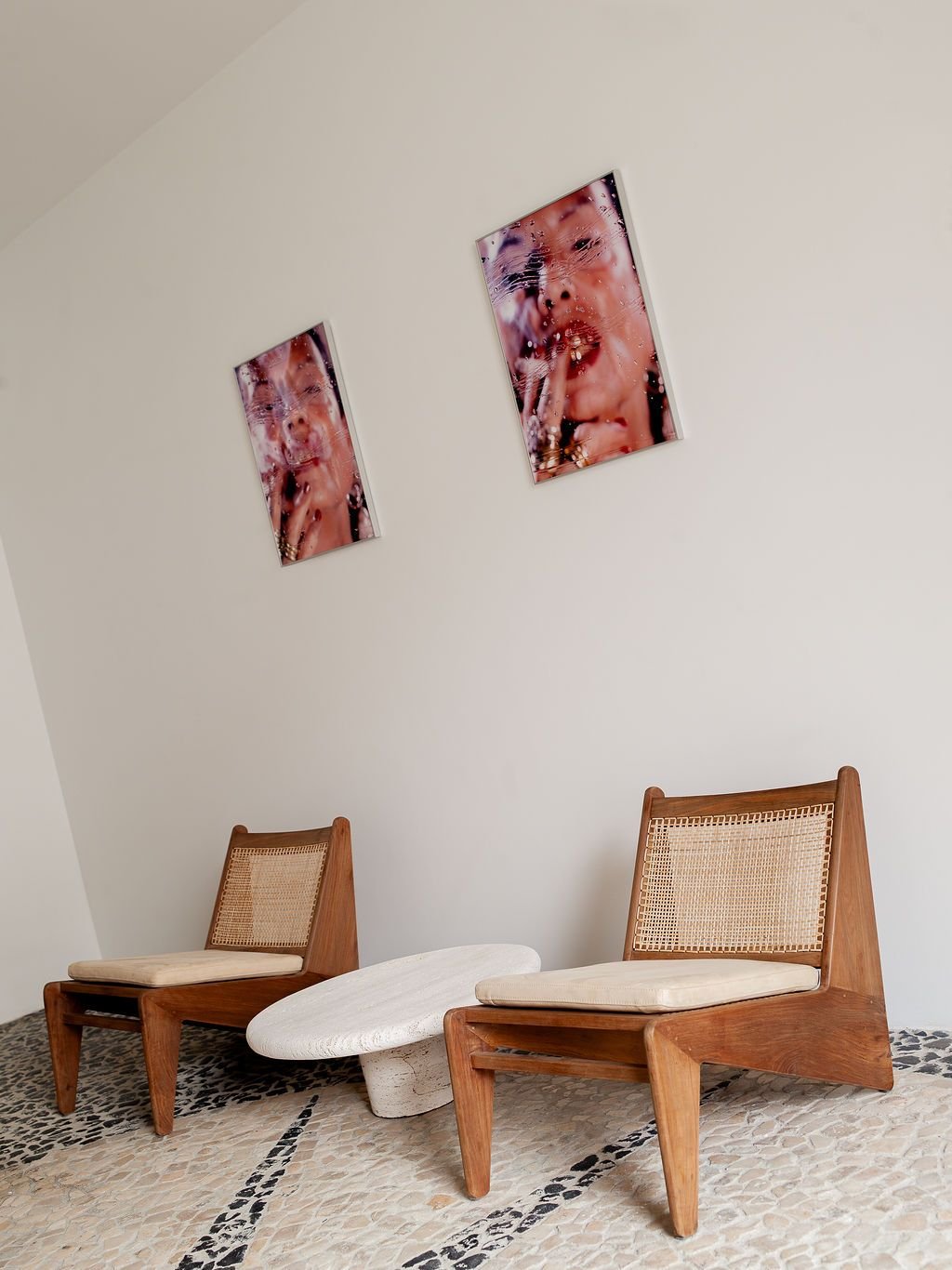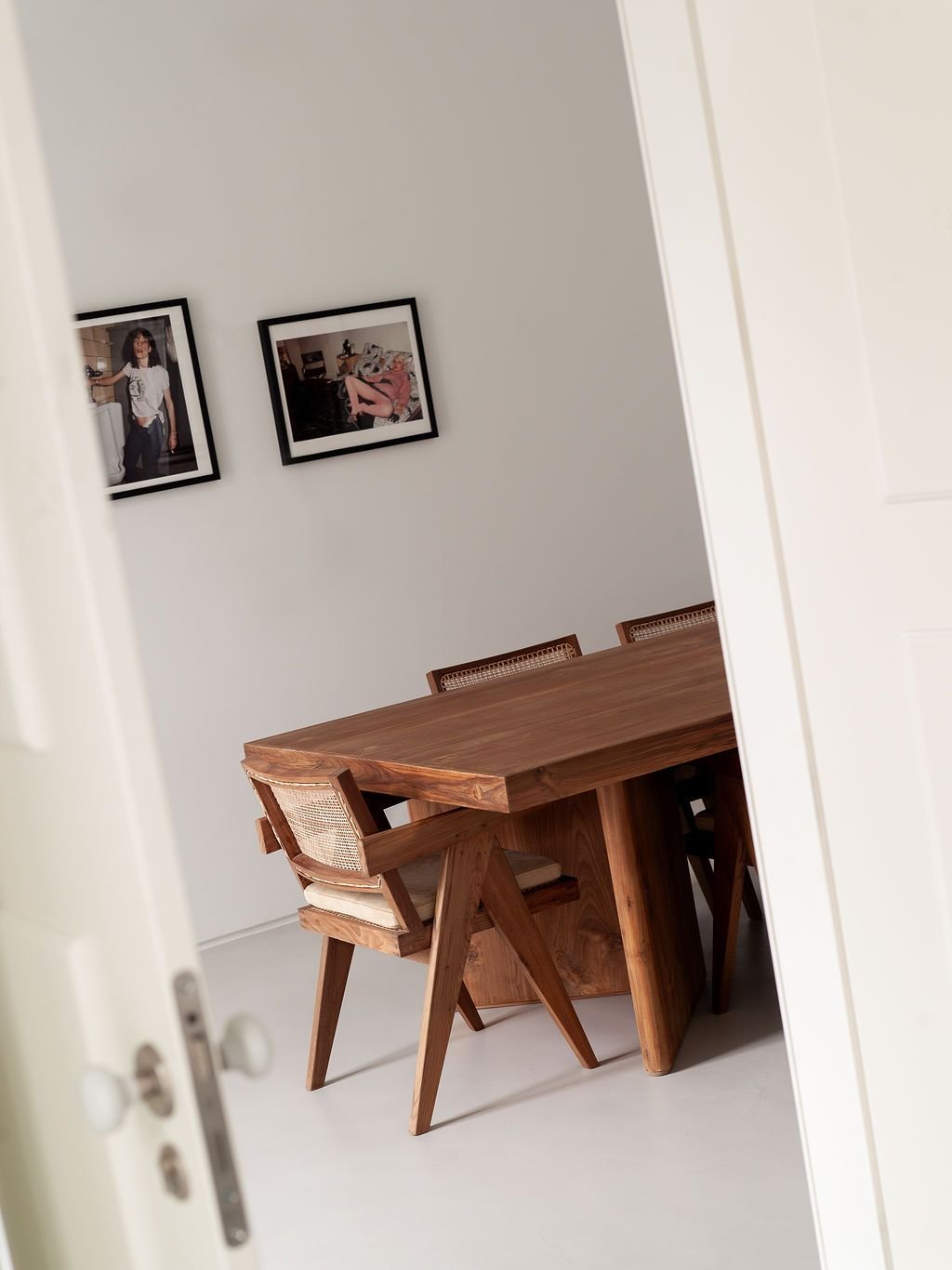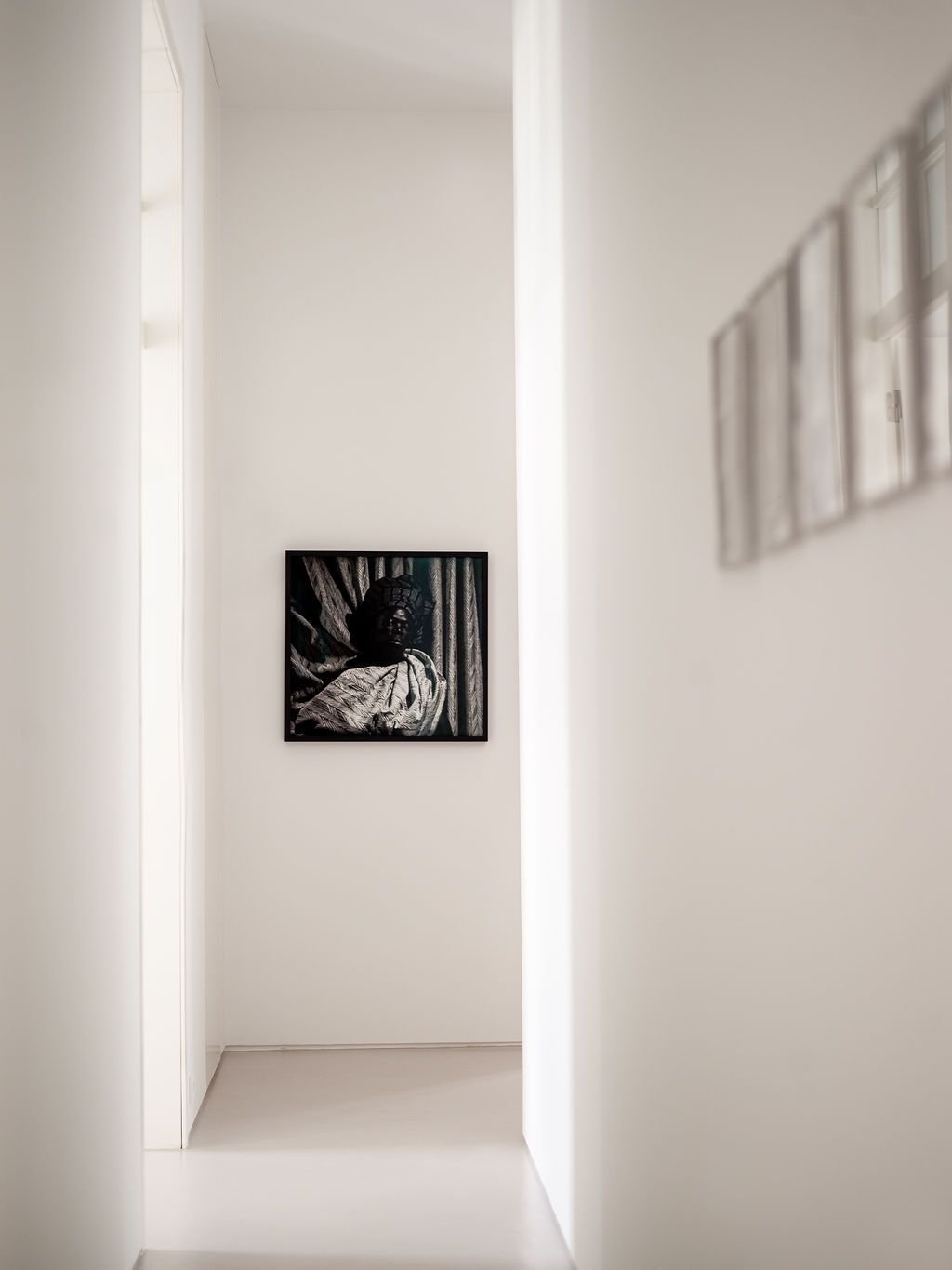Her Clique: In Conversation with Izabela Depczyk
The visionary behind the art platform championing women and non-binary artists while also supporting non-profits shares insights on making art more easily collectible and the opening of her first gallery space in Portugal.
Marilyn Minter, Inhale, 2023. Dye sublimation print. 24 x 18” (61 x 46cm). As featured in MALCRIADAS.
One year ago, I received an invitation from my talented friend and fashion photographer, Viridiana, to attend a collective show and dinner party titled Casa Filipka by Her Clique in a charming house nestled in the eclectic neighborhood of La Roma in Mexico City. Intrigued by the unknown nature of the event, Viridiana and I, without hesitation, RSVPed.
Upon our arrival, the exhibition unfolded, revealing the inspiring works of 16 Eastern European women and non-binary artists. Crafted under the curation of the multidisciplinary artist and performer Filipka Rutkowska and Her Clique founder, Izabela Depczyk, the show was conceived as a transient art collection narrating tales of the journey to self-(re)discovery. Capturing the essence of a region in perpetual transition, where democratic foundations are laid upon remnants of a communist past, the artists utilized their creations to delve into their unique, native interpretations of identity, sexuality, and belonging.
More than an art exhibition, the event was also a philanthropic endeavor, with a portion of the proceeds benefiting Atzin, a non-profit organization dedicated to addressing essential needs such as education, nutrition, water, and health in remote areas of Mexico.
Though I have been following the project since then, it was only a couple months ago that I had the chance to connect with Izabela. In our phone call, she shared more about Her Clique's mission of promoting women artists, making the art market more accessible to a broader audience, fundraising and our love for Portugal.
Last but not least, she also revealed the exciting news of the opening of her first gallery in Lisbon this month.
Izabela Depczyk. Courtesy of HerClique.
Georgina: Can you share your story? What sparked your initial involvement in the arts?
Izabela: I studied journalism and political science, then pursued my master's degree in international law. My initial aspiration was to be a journalist, focusing on social and political issues. I started my career at a newspaper and later worked for a TV network. Then ARTnews magazine approached me to run their digital publishing - which is how my journey with art began. Later I worked for an online auction house, ran my digital marketing agency that collaborated with luxury clients in the art space, and engaged with artists. Eventually, I realized that what brought me most joy was direct interaction with art and artists and that’s what sparked the idea to establish Her Clique. I founded the project four years ago, with a specific focus on women and non-binary artists. My motivation stems from the fact that the art market favors male artists in terms of representation, opportunities and in the prices at which their works are sold.
Since the inception of Her Clique, we've undertaken over 50 collaborations with various women and non-binary artists. Our initial strategy was producing limited edition artworks, the proceeds from which would be donated to charities of the artists’ choice. To date, we’ve supported multiple charities including Planned Parenthood, World Central Kitchen, Voices of Children, United Way and many others.
Over time, Her Clique expanded its activities beyond online collaborations to encompass pop-up shows, physical exhibitions, events, and various panels. This multifaceted approach has proven effective in engaging a new demographic of collectors and in fostering a community characterized by mutual understanding and support.
“In a world that's so polarized, I think it is important to continue to communicate with each other even if we may be on opposing spectrums of political, social or other discourse. Art can be a motor for fostering communication. So to me, Her Clique Lisbon is not just a gallery, but also a place for cultural programming focused on community-building.”
Georgina: While I understand the goal of promoting and celebrating women and non-binary artists, I'm curious about your personal criteria. What elements do you prioritize when considering an artist for collaboration?
Izabela: In the past, the most important aspect for us was to sell out limited editions because that's how we would fundraise for charities. We would look to artists who had an established market and a strong collector base, and of course whose values aligned with ours in terms of supporting good causes. Now, as a gallery with a year-round program, we are pivoting to a much more curatorially-focused approach. The gallery won’t be representing any artists exclusively or permanently. Rather, all of our shows will be group exhibitions produced by various guest curators. As MALCRIADAS is the first show in the newly opened space, I decided to curate it myself, in a way to set the stage for what Her Clique is all about. MALCRIADAS, which loosely translates to “bad girls” is an exhibition of works by artists who challenge the status quo and oppose toxic conventions. The show includes artists like Erin M. Riley, Zanele Muholi, Marilyn Minter, Katarina Janeckova and others who in my view represent the idea of the quintessential bad girl.
Georgina: I love Lisbon! What influenced your decision to establish Her Clique's first gallery space in this city?
Izabela: I've always loved Portugal – I've had a house in the south for over ten years now, so I feel very attached to the country. Lisbon is such an international city, people here are very open-minded, there’s a rich history of culture and arts – on many personal and professional levels it just made sense to set up Her Clique’s flagship here.
Photos by Pernille Haugen
Georgina: In the current landscape highly influenced by the Internet and Social Media, how do you define art collecting today?
Izabela: It's a personal journey. People have different preferences and parameters according to which they collect art. When I purchase an artwork, it’s not part of some grand scheme of how it would fit into my “collection”. I just buy work that resonates with me on a deeper, personal level.
“Of course, social media allows for a type of democratization of how art, or at least art content, is consumed. Artists are no longer limited by the constraints of gallery walls when it comes to showcasing their work, however social media can’t and won’t replace the physical experience of seeing art in real life and of interacting with it in real time.”
To inaugurate the gallery, Her Clique opened MALCRIADAS, a group show featuring 21 contemporary women and non-binary artists whose practices embody the essence of the Portuguese term that loosely translates to “bad girls.”
Her Clique Lisbon
Largo do Contador Mor 4, Lisbon, Portugal
MALCRIADAS is on view until April 26th.






